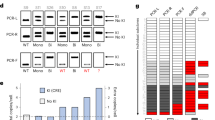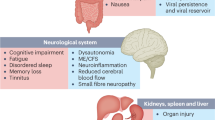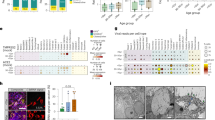Abstract
Periodic fever, aphthous stomatitis, pharyngitis and adenopathy (PFAPA) syndrome is an auto-inflammatory disease for which a genetic basis has been postulated. Nevertheless, in contrast to the other periodic fever syndromes, no candidate genes have yet been identified. By cloning, following long insert size paired-end sequencing, of a de novo chromosomal translocation t(10;17)(q11.2;p13) in a patient with typical PFAPA syndrome lacking mutations in genes associated with other periodic fever syndromes we identified SPAG7 as a candidate gene for PFAPA. SPAG7 protein is expressed in tissues affected by PFAPA and has been functionally linked to antiviral and inflammatory responses. Haploinsufficiency of SPAG7 due to a microdeletion at the translocation breakpoint leading to loss of exons 2–7 from one allele was associated with PFAPA in the index. Sequence analyses of SPAG7 in additional patients with PFAPA point to genetic heterogeneity or alternative mechanisms of SPAG7 deregulation, such as somatic or epigenetic changes.
This is a preview of subscription content, access via your institution
Access options
Subscribe to this journal
Receive 6 digital issues and online access to articles
$119.00 per year
only $19.83 per issue
Buy this article
- Purchase on Springer Link
- Instant access to full article PDF
Prices may be subject to local taxes which are calculated during checkout


Similar content being viewed by others
References
Marshall GS, Edwards KM, Butler J, Lawton AR . Syndrome of periodic fever, pharyngitis, and aphthous stomatitis. J Pediatr 1987; 110: 43–46.
Padeh S, Brezniak N, Zemer D, Pras E, Livneh A, Langevitz P et al. Periodic fever, aphtous stomatitis, pharyngitis, and adenopathy syndrome: clinical characteristics and outcome. J Pediatr 1999; 135: 98–101.
Tasher D, Somekh E, Dalal I . PFAPA syndrome: new clinical aspects disclosed. Arch Dis Child 2006; 91: 981–984.
Vigo G, Zulian F . Periodic fevers with aphthous stomatitis, and adenitis (PFAPA). Autoimmun Rev 2012; 12: 52–55.
Feder HM, Salazar JC . A clinical review of 105 patients with PFAPA (a periodic fever syndrome). Acta Paediatr 2010; 99: 178–184.
Marcuzzi A, Piscianz E, Kleiner G, Tommasini A, Severini GM, Monasta L et al. Clinical genetic testing of periodic fever syndromes. Biomed Res Int 2013; 147: 155–174.
Savic S, Dickie LJ, Battelino M, McDermott MF . Familial Mediterranean fever and related periodic fever syndromes/autoinflammatory diseases. Curr Opin Rheumatol 2012; 24: 103–112.
Akelma AZ, Cizmeci MN, Kanburoglu MK, Mete E, Bozkaya D, Tufan N et al. Is PFAPA syndrome really a sporadic disorder or is it genetic? Med Hypotheses 2013; 81: 279–281.
Cochard M, Clet J, Le L, Pillet P, Onrubia X, Guéron T et al. PFAPA syndrome is not a sporadic disease. Rheumatology (Oxford) 2010; 49: 1984–1987.
Kolly L, Busso N, von Scheven-Gete A, Bagnoud N, Moix I, Holzinger D et al. Periodic fever, aphthous stomatitis, pharyngitis, cervical adenitis syndrome is linked to dysregulated monocyte IL-1β production. J Allergy Clin Immunol 2013; 131: 1635–1643.
Berkun Y, Levy R, Hurwitz A, Meir-Harel M, Lidar M, Livneh A et al. The familial Mediterranean fever gene as a modifier of periodic fever, aphthous stomatitis, pharyngitis, and adenopathy syndrome. Semin Arthritis Rheum 2011; 40: 467–472.
Stojanov S, Lapidus S, Chitkara P, Feder H, Salazar JC, Fleisher TA et al. Periodic fever, aphthous stomatitis, pharyngitis, and adenitis (PFAPA) is a disorder of innate immunity and Th1 activation responsive to IL-1 blockade. Proc Natl Acad Sci USA 2011; 108: 7148–7153.
Caorsi R, Pelagatti MA, Federici S, Finetti M, Martini A, Gattorno M . Periodic fever, aphthous stomatitis, pharyngitis and adenitis syndrome. Curr Opin Rheumatol 2010; 22: 579–584.
Peridis S, Pilgrim G, Koudoumnakis E, Athanasopoulos I, Houlakis M, Parpounas K . PFAPA syndrome in children: a meta-analysis on surgical versus medical treatment. Int J Pediatr Otorhinolaryngol 2010; 74: 1203–1208.
Higgins AW, Alkuraya FS, Bosco AF, Brown KK, Bruns GA, Donovan DJ et al. Characterization of apparently balanced chromosomal rearrangements from the developmental genome anatomy project. Am J Hum Genet 2008; 82: 712–722.
Cacciagli P, Haddad MR, Mignon-Ravix C, El-Waly B, Moncla A, Missirian C et al. Disruption of the ATP8A2 gene in a patient with a t(10;13) de novo balanced translocation and a severe neurological phenotype. Eur J Hum Genet 2010; 18: 1360–1363.
Warburton D . De novo balanced chromosome rearrangements and extra marker chromosomes identified at prenatal diagnosis: clinical significance and distribution of breakpoints. Am J Hum Genet 1991; 49: 995–1013.
Korbel JO, Urban AE, Affourtit JP, Godwin B, Grubert F, Simons JF et al. Paired-end mapping reveals extensive structural variation in the human genome. Science 2007; 318: 420–426.
1000 Genomes Project Consortium, Abecasis GR, Auton A, Brooks LD, DePristo MA, Durbin RM et al. An integrated map of genetic variation from 1,092 human genomes. Nature 2012; 491: 56–65.
Jones DT, Jäger N, Kool M, Zichner T, Hutter B, Sultan M et al. Dissecting the genomic complexity underlying medulloblastoma. Nature 2012; 488: 100–105.
Mao M, Fu G, Wu JS, Zhang QH, Zhou J, Kan LX et al. Identification of genes expressed in human CD34(+) hematopoietic stem/progenitor cells by expressed sequence tags and efficient full-length cDNA cloning. Proc Natl Acad Sci USA 1998; 95: 8175–8180.
Beaton S, Cleary A, ten Have J, Bradley MP . Cloning and characterization of a fox sperm protein FSA-1. Reprod Fertil Dev 1994; 6: 761–770.
Grishin NV . The R3H motif: a domain that binds single-stranded nucleic acids. Trends Biochem Sci 1998; 23: 329–330.
Kerr JR . Pathogenesis of parvovirus B19 infection: host gene variability, and possible means and effects of virus persistence. J Vet Med B Infect Dis Vet Public Health 2005; 52: 335–339.
Lehner B, Semple JI, Brown SE, Counsell D, Campbell RD, Sanderson CM . Analysis of a high-throughput yeast two-hybrid system and its use to predict the function of intracellular proteins encoded within the human MHC class III region. Genomics 2004; 83: 153–167.
Hsieh YY, Lin YJ, Chang CC, Chen CY, Hsu CM, Wang YK et al. Human lymphocyte antigen B-associated transcript 2,3, and 5 polymorphisms and haplotypes are associated with susceptibility of Kawasaki disease and coronary artery aneurysm. J Clin Lab Anal 2010; 24: 262–268.
Thomas KT, Feder HMJ, Lawton AR, Edwards KM . Periodic fever syndrome in children. J Pediatr 1999; 135: 15–21.
Rausch T, Zichner T, Schlattl A, Stütz AM, Benes V, Korbel JO . DELLY: structural variant discovery by integrated paired-end and split-read analysis. Bioinformatics 2012; 28: i333–i339.
Acknowledgements
We thank the technical staff of the cytogenetic and molecular genetic laboratories of the Institute of Human Genetics for expert assistance, as well as all clinicians involved in the care of the patients for support and all individuals for their participation. JOK was supported by an Emmy Noether Fellowship (KO 4037/1-1) from the German Research Foundation and RW is recipient of a stipend from the KinderKrebsInitiative Buchholz/Holm-Seppensen. RS is a member of the Excellence Cluster ‘Inflammation at Interfaces’.
Author information
Authors and Affiliations
Corresponding author
Ethics declarations
Competing interests
The authors declare no conflict of interest.
Additional information
Supplementary Information accompanies this paper on Genes and Immunity website
Supplementary information
Rights and permissions
About this article
Cite this article
Bens, S., Zichner, T., Stütz, A. et al. SPAG7 is a candidate gene for the periodic fever, aphthous stomatitis, pharyngitis and adenopathy (PFAPA) syndrome. Genes Immun 15, 190–194 (2014). https://doi.org/10.1038/gene.2013.73
Received:
Revised:
Accepted:
Published:
Issue Date:
DOI: https://doi.org/10.1038/gene.2013.73
Keywords
This article is cited by
-
Expression of SPAG7 and its regulatory microRNAs in seminal plasma and seminal plasma-derived extracellular vesicles of patients with subfertility
Scientific Reports (2023)
-
The role of inflammatory mediators in the pathogenesis of periodic fever, aphthous stomatitis, pharyngitis and cervical adenitis (PFAPA) syndrome
Molecular Biology Reports (2022)
-
PFAPA (periodic fever, aphthous stomatitis, pharyngitis, and adenitis) syndrome: an overview of genetic background
Clinical Rheumatology (2021)
-
Rare missense variants in the ALPK1 gene may predispose to periodic fever, aphthous stomatitis, pharyngitis and adenitis (PFAPA) syndrome
European Journal of Human Genetics (2019)
-
Cryptic sequence features in the active postmortem transcriptome
BMC Genomics (2018)



